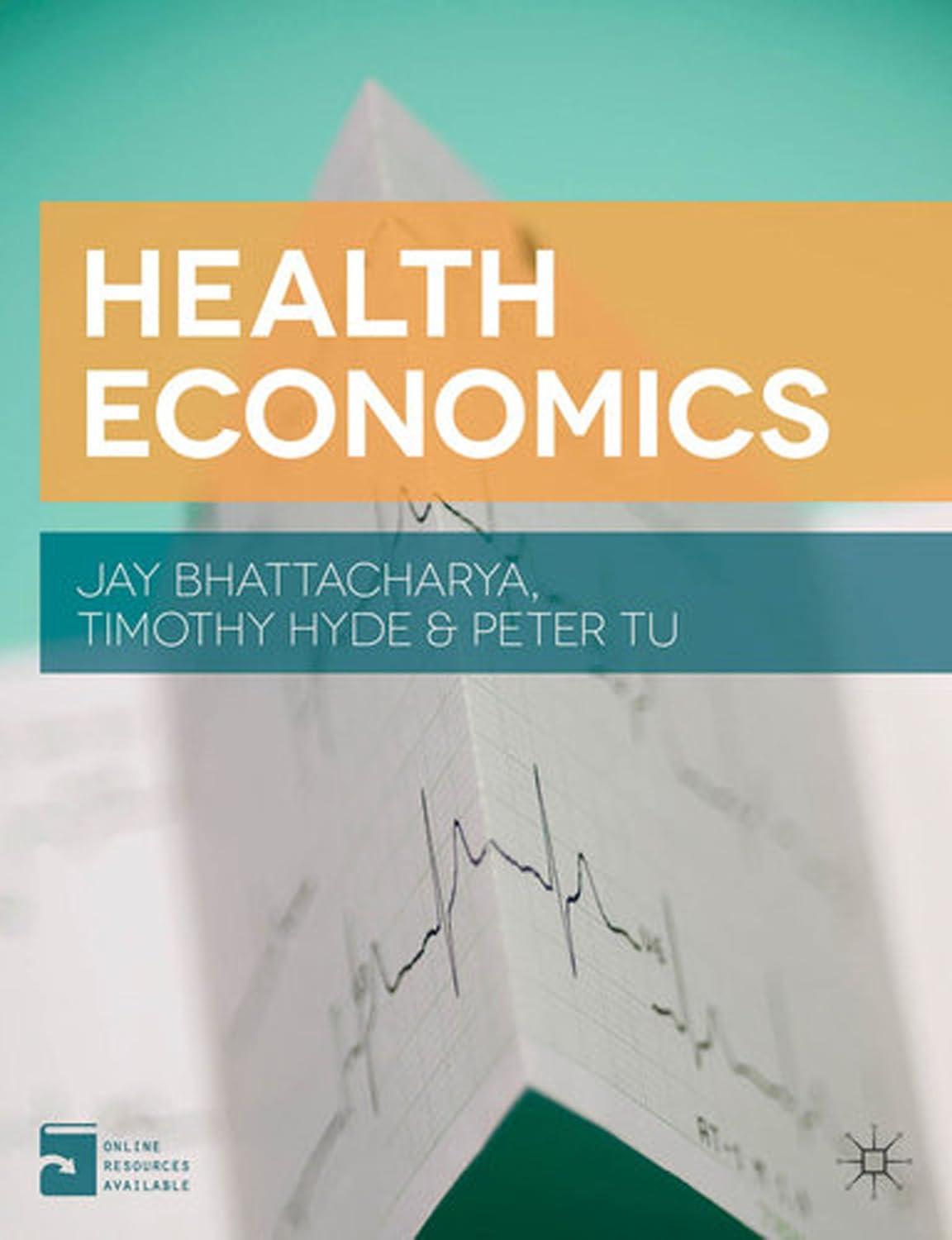Below is an excerpt from the abstract of a recent National Bureau of Economic Research working paper
Question:
Below is an excerpt from the abstract of a recent National Bureau of Economic Research working paper entitled “Adverse selection and switching costs in health insurance markets: when nudging hurts” by Benjamin Handel (2011):
This paper investigates consumer switching costs in the context of health insurance markets, where adverse selection is a potential concern . . .We present descriptive results to show that (i) Switching costs are large and (ii) adverse selection is present. To formalize this analysis we develop and estimate a choice model that jointly quantifies switching costs, risk preferences, and ex ante health risk. We use these estimates to study the welfare impact of an information provision policy that nudges consumers toward better decisions by reducing switching costs. This policy increases welfare in a naive setting where insurance plan prices are held fixed. However, when insurance prices change endogenously to reflect updated enrollee risk pools, the same policy substantially exacerbates adverse selection and reduces consumer welfare, doubling the existing welfare loss from adverse selection.
a. Handel finds that providing information about health insurance plans to people can exacerbate adverse selection. Explain how barriers to switching health insurance plans can partially solve the adverse selection problem in health insurance.
b. In Handel’s model, reducing plan-switching costs actually makes people worse off.
Explain how the utility of people in the market might decrease if these costs are reduced. Are robust types harmed? Are frail types harmed?
Step by Step Answer:






